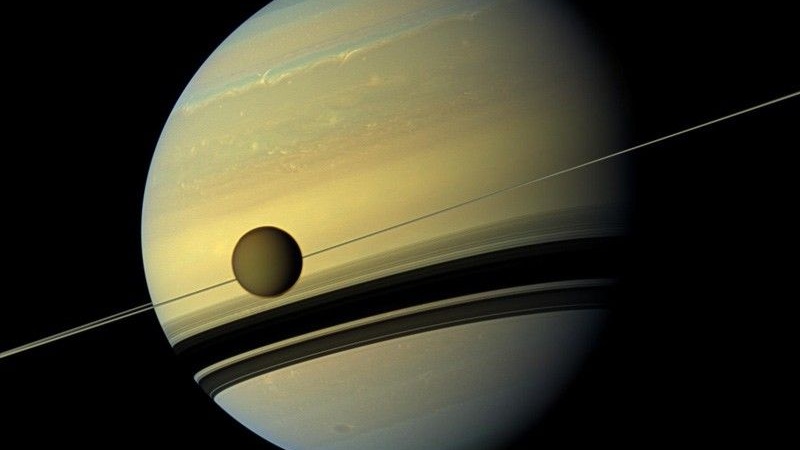House Markup Boosts NASA Aeronautics and Science Budgets
Breaking space news, the latest updates on rocket launches, skywatching events and more!
You are now subscribed
Your newsletter sign-up was successful
Want to add more newsletters?

Delivered daily
Daily Newsletter
Breaking space news, the latest updates on rocket launches, skywatching events and more!

Once a month
Watch This Space
Sign up to our monthly entertainment newsletter to keep up with all our coverage of the latest sci-fi and space movies, tv shows, games and books.

Once a week
Night Sky This Week
Discover this week's must-see night sky events, moon phases, and stunning astrophotos. Sign up for our skywatching newsletter and explore the universe with us!

Twice a month
Strange New Words
Space.com's Sci-Fi Reader's Club. Read a sci-fi short story every month and join a virtual community of fellow science fiction fans!
A House budget panel drafted a 2007 spending bill that would fund NASA at slightly below its $16.792 billion request and require the agency to direct more money toward aeronautics research and science programs.
Meeting June 14 to mark up a nearly $60 billion spending bill covering several federal agencies, the House Appropriations science, state, justice and commerce subcommittee voted to give NASA $16.709 billion. While that figure is $86 million more than Congress gave NASA for 2006, it is $83 million less than the White House is seeking for the agency in the year ahead.
Even within that lower ceiling, the subcommittee managed to carve out an extra $175 million for aeronautics and science, largely by paring back NASA's request for human spaceflight programs.
Although the subcommittee agreed to fully fund NASA's effort to replace the space shuttle with a Crew Exploration Vehicle and a rocket to launch it, lawmakers cut about $150 million from NASA's proposed budget for technology development meant to enable the agency's exploration goals.
The subcommittee also approved NASA's $4 billion request for the space shuttle as well as the roughly $200 million being sought for cargo- and crew-delivery services to the international space station. NASA intends to use the money to pay Russia for Soyuz and Progress launches and fund a commercial demonstration effort meant to yield new U.S. providers.
NASA's $1.8 billion request for space station operations took a $33 million hit. The subcommittee also took about $75 million from several accounts that cover the agency's administrative overhead, improvements to its financial management systems and grant programs geared toward small businesses.
The targeted reductions enabled Rep. Frank Wolf (R-Va.), the subcommittee's chairman, to make good on his pledge to add more money to NASA's aeronautics budget. Under NASA's proposed budget, aeronautics spending would drop from $884 million this year to $724 million next year and then hold steady through the end of the decade. The $100 million added by the subcommittee would leave NASA's aeronautics program just $60 million short of what it has to spend this year.
Breaking space news, the latest updates on rocket launches, skywatching events and more!
Of the $75 million the subcommittee added for NASA's Science Mission Directorate, $50 million would go toward research and analysis grants for scientists who sift through the data streaming back from the agency's fleet of Earth-observing satellites, space telescopes and planetary probes. NASA's proposal to reduce its grant-making funding by 15 percent or more in the year ahead provoked an outcry from the science community.
The remaining $25 million was earmarked for a pair of missions that did not rank high on NASA's priority list. The appropriators provided $10 million for the two-spacecraft Terrestrial Planet Finder mission, which NASA wants to defer, and $15 million to begin work on a mission to Jupiter's icy moon Europa. Despite direction from Congress last year to get started on a Europa mission, NASA did not request any money for the estimated $400 million-plus undertaking.
The Planetary Society, a Pasadena, Calif.-based advocacy organization that has been lobbying hard for more of NASA's budget to go toward science, applauded the subcommittee's markup as a good "first step" toward putting the space agency's mix of human space flight and robotic science programs back in balance.
"The funding for exploring Europa is terrific news, and we hope NASA will embrace a new start for this project," Louis Friedman, the Planetary Society's executive director, said in a statement. "Restoration of some additional science funding also helps, although 80 percent of the administration cuts still remain. We will seek even broader congressional support to continue restoring science funding."
NASA's 2007 budget has a long way to go before final enactment. The full House Appropriations Committee must weigh in on the bill before sending it to the floor for a vote, and a companion bill has yet to be introduced in the Senate.
The Senate Appropriations commerce, justice and science subcommittee is expected to mark up its version of the NASA spending bill in late July or early September. The ranking Democrat on the subcommittee, Sen. Barbara Mikulski (Md.), has pledged to fight for a $2 billion increase for NASA. Her allies in that effort include Sens. Bill Nelson (D-Fla.) and Kay Bailey Hutchison (R-Texas), a fellow appropriator who also chairs the Senate Commerce science and space subcommittee. Nelson and Hutchison have not explicitly endorsed Mikulski's call for a $2 billion increase for NASA, but have said on multiple occasions that the agency's 2007 budget should be at least $1 billion higher than the president's request.
Brian Berger is the Editor-in-Chief of SpaceNews, a bi-weekly space industry news magazine, and SpaceNews.com. He joined SpaceNews covering NASA in 1998 and was named Senior Staff Writer in 2004 before becoming Deputy Editor in 2008. Brian's reporting on NASA's 2003 Columbia space shuttle accident and received the Communications Award from the National Space Club Huntsville Chapter in 2019. Brian received a bachelor's degree in magazine production and editing from Ohio University's E.W. Scripps School of Journalism.
